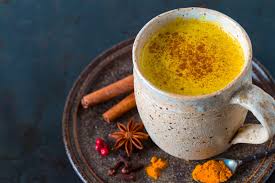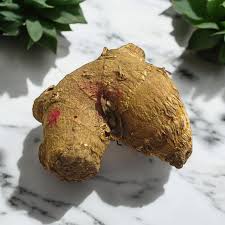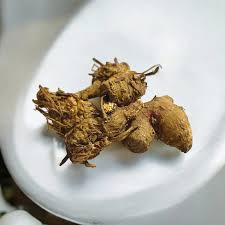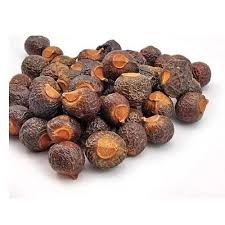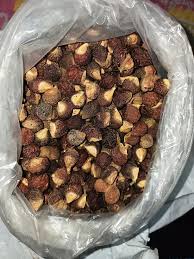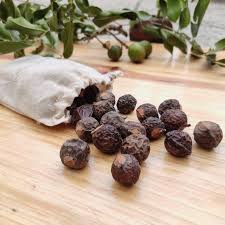
How Babchi Seed Can Treat Vitiligo & White Patches
Vitiligo, a skin condition characterized by the loss of pigmentation, results in the appearance of white patches on the skin. While the exact cause of vitiligo remains unclear, it is often linked to autoimmune responses, genetics, and environmental factors. One of the most effective natural remedies for treating vitiligo and restoring skin pigmentation is Babchi seed (Psoralea corylifolia). Known for its powerful healing properties in Ayurvedic medicine, Babchi seed has shown promising results in combating pigmentation disorders like vitiligo. In this article, we will explore how Babchi seed can help treat vitiligo and white patches, its benefits, how to use it, and the scientific evidence supporting its use in skin pigmentation treatment.
Long Description:
- What is Babchi Seed?
Babchi seed, also called Bakuchi, has been used in Ayurvedic and traditional Chinese medicine for centuries to treat various skin disorders. This herb is rich in active compounds such as psoralen and bakuchiol, which have potent anti-inflammatory, antioxidant, and skin-healing properties. These compounds are known to rejuvenate and restore skin health, particularly when dealing with conditions like vitiligo, where the skin loses its natural pigmentation.
- Understanding Vitiligo & White Patches
Vitiligo is a chronic skin condition in which the skin loses its color due to the destruction of melanocytes (cells responsible for pigment production). This results in the formation of white patches or depigmented areas on the skin, which can affect various body parts, including the face, hands, and even the hair. While vitiligo is not harmful or contagious, it can significantly impact a person’s appearance and confidence.
White patches can also appear due to other reasons such as fungal infections or skin injuries. However, Babchi seed is widely regarded as a safe and natural remedy to restore the lost pigment in the skin.
- How Babchi Seed Helps Treat Vitiligo
Babchi seed’s therapeutic properties come from its active compounds, particularly psoralen and bakuchiol. These compounds play a crucial role in stimulating the production of melanin and promoting the repigmentation of the skin in areas affected by vitiligo. Here’s how they work:
Psoralen and UV Sensitivity: Psoralen is known for its ability to increase the skin’s sensitivity to ultraviolet (UV) light. When used in conjunction with UV therapy (known as PUVA therapy), psoralen enhances the production of melanin in the skin, helping to repigment the white patches caused by vitiligo.
Bakuchiol’s Role in Skin Regeneration: Bakuchiol, often referred to as a natural alternative to retinol, helps to stimulate collagen production and promotes cell turnover. This leads to healthier skin and can contribute to the regeneration of melanocytes in depigmented areas.
Anti-inflammatory Benefits: Babchi seed also has strong anti-inflammatory effects, which help reduce the redness and irritation often seen with vitiligo patches.
- Benefits of Babchi Seed for Vitiligo
Natural Repigmentation: Regular use of Babchi seed can stimulate the production of melanin, which helps to restore color to the white patches caused by vitiligo.
Skin Healing: Babchi seed’s ability to promote skin cell regeneration can help repair and heal damaged skin, especially areas affected by vitiligo.
Prevents Further Pigmentation Loss: Babchi seed can slow the progression of vitiligo and prevent the further spread of depigmented patches.
Promotes Even Skin Tone: By encouraging melanin production, Babchi seed helps create a more uniform skin tone, reducing the contrast between the depigmented areas and the rest of the skin.
- How to Use Babchi Seed for Vitiligo Treatment
Babchi seed can be used in various forms, depending on your preference and convenience. Here are the most effective ways to use it for treating vitiligo and white patches:
Babchi Seed Oil: The most common form of Babchi seed treatment is in oil form. You can directly apply Babchi oil onto the affected areas of the skin. Gently massage the oil into the skin to enhance absorption. This oil can be used twice a day for best results.
Babchi Seed Powder: Babchi seed powder can be mixed with other Ayurvedic ingredients like turmeric, honey, or aloe vera to create a soothing paste. Apply this mixture to the affected skin and leave it for 20–30 minutes before rinsing off.
Babchi Seed Infused Oil: You can prepare a homemade infused oil by mixing Babchi seed powder with a carrier oil (such as coconut or olive oil) and letting it sit in sunlight for a few days. This infused oil can be applied to the skin to improve pigmentation.
Babchi Seed Capsules or Supplements: Some people prefer taking Babchi seed supplements for internal healing. However, it’s advisable to consult with a healthcare provider before using Babchi seed in supplement form, especially if you have any pre-existing health conditions.
- Precautions and Side Effects
While Babchi seed is generally considered safe, it is important to follow a few precautions:
Patch Test: Babchi seed can be potent for some skin types. It’s important to perform a patch test before using it on larger areas of your skin to ensure you don’t have an allergic reaction.
Sun Sensitivity: Babchi seed, especially in oil form, can make the skin more sensitive to sunlight due to the presence of psoralen. It is important to avoid direct sunlight after applying Babchi seed products or to use sunscreen regularly.
Pregnancy and Breastfeeding: As with any herbal remedy, it is recommended to consult with a healthcare provider before using Babchi seed during pregnancy or breastfeeding.
- Scientific Backing and Research
Research supports Babchi seed’s potential for treating vitiligo. Studies have shown that Psoralea corylifolia (Babchi seed) plays a key role in depigmentation treatments by stimulating melanin production and enhancing UV light therapy. The active compounds like psoralen and bakuchiol have been widely studied for their benefits in skin regeneration and pigmentation management.
- Conclusion
Babchi seed offers a promising natural remedy for vitiligo and white patches. Its powerful active compounds stimulate melanin production, promote skin regeneration, and help restore an even skin tone. While it’s not a guaranteed cure, many have found Babchi seed to be an effective treatment for pigmentation issues. Always follow the correct usage instructions and precautions to achieve the best results. If you’re looking for a natural solution to your skin pigmentation problems, Babchi seed could be the answer.




